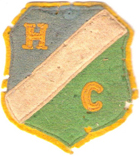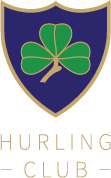By Ronnie QuinnHistory of Hurling Club
 The Hurling Club of Buenos Aires presents an eloquent case study for the researcher of Diasporic Irish identities. Established by an initial group of enthusiastic young men – most of them with Roman Catholic and urban middle-class backgrounds – the Club never attracted the traditional rural population of wealthier Irish immigrants or their families. With the support of Roman Catholic missionaries to the Irish in Argentina, hurling was introduced in this country by the writer William Bulfin and other nationalists shortly after the foundation of the Gaelic Athletic Association in Ireland. This article is an account of the different events that led to the foundation of the Club, and its further development from the restricted Irish Catholic social circle of employees of the British companies in Buenos Aires to its current status as an inclusive and prominent supporter of rugby, field hockey and other sports.
The Hurling Club of Buenos Aires presents an eloquent case study for the researcher of Diasporic Irish identities. Established by an initial group of enthusiastic young men – most of them with Roman Catholic and urban middle-class backgrounds – the Club never attracted the traditional rural population of wealthier Irish immigrants or their families. With the support of Roman Catholic missionaries to the Irish in Argentina, hurling was introduced in this country by the writer William Bulfin and other nationalists shortly after the foundation of the Gaelic Athletic Association in Ireland. This article is an account of the different events that led to the foundation of the Club, and its further development from the restricted Irish Catholic social circle of employees of the British companies in Buenos Aires to its current status as an inclusive and prominent supporter of rugby, field hockey and other sports.From the mid-1850s, there was a rapid spread in Ireland of organised sports of English origin, in particular cricket. This coincided with major land-reform and an agitation towards selfgovernment in the form of the Home Rule movement. Allied to this was the increase in literacy and transportation links, which made it easier to distribute British goods. A logical reaction to these events was a growing feeling that a distinctive sense of Irish culture was being slowly eroded. Archbishop Croke of Cashel, a leading member of the Irish Roman Catholic hierarchy, voiced his indignation ‘by the ugly and irritating fact that we are importing from England not only her manufactured goods, but her fashions, her accents, her vicious literature, her music, her dances and her manifold mannerisms, her games and her pastimes, to the utter discredit of our own grand national sports, to the sore humiliation, as I believe, of every genuine son and daughter of the old land’ (Mandel 1979: 100-101). In November 1884 theGaelic Athletic Association (GAA) was founded in Thurles in County Tipperary to revive and nurture traditional Irish pastimes such as hurling and a local variant of football.
As Whelan (1993) postulates, there were historically two variants of the game of hurling: iomán a summer game which was played in the southern part of Ireland where the ball could be handled or carried on the hurley and camán, which was akin to modern field hockey in that it did not allow handling of the ball. As in England with other traditional sports, iomán waspatronised by the gentry as a spectator and gambling sport, associated with fairs and other public gatherings. They picked the teams, arranged the hurling greens and supervised the matches, which were frequently organised as gambling events. ‘Landlord patronage was essential to the well-being of the southern game; once it was removed, the structures it supported crumbled and the game collapsed into shapeless anarchy’ (Whelan 1993: 29). Other factors also played a part in its demise, including political turbulence, modernisation and the dislocating impact of the potato famine. By the midnineteenth century the game had virtually disappeared, only remaining in a few pockets, including Cork city, South East Galway and north of Wexford town. It was to be the southern version iomán which would form the template for the organised game of hurling.
Such was the rapid spread of the organisation that three to fours years after the GAA’s foundation, hurling made its first appearance in Argentina. Generally it has been viewed that political nationalism was the primary reason for the rapid spread of the organisation. Whilst it is impossible to ignore the important contribution that it made to the dissemination of the sport, recent work by historians such as Cronin (1998) has argued that other factors led to the growth of the GAA including ‘codification, fair play, muscular Christianity’ (Cronin 1998: 89), which are similar reasons given for the spread of British sports. But there may be broader social and cultural reasons for this as well, especially in the Diaspora. We examine below how hurling initially helped a section of the Irish-Argentine community form a distinct identity differentiating them from others in the English speaking community, as well as from the wider community.
